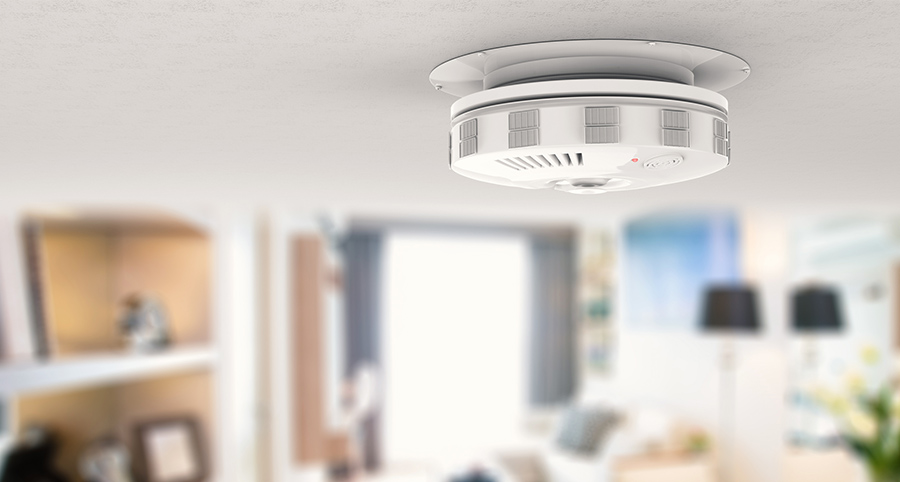Is there a difference between regular smoke detectors vs. monitored fire alarms in College Station?

In the College Station smoke detector vs. monitored fire alarm discussion, there’s only one winner. Smoke detectors are an important consideration in guarding your residence from a dangerous blaze, but they have several drawbacks. Conversely, monitored fire alarms have more methods to discover an emergency and can reach out to a monitoring team in the event of a disaster. Pairing your fire alarms to a security system also results in various other perks that your regular smoke detectors can only dream about.
The drawbacks of ordinary smoke alarms in [[targetlocaion]]
Defending against fire is a chief concern for homeowners, and smoke detectors play a critical role in keeping your family safe. Even so, smoke detectors have their drawbacks. To illustrate, they can only react to smoke, not high temps. When there is a fire in your home, you might not be warned unless the smoke reaches the smoke detector. Although there are further telltale signals of fire -- like a sharp heat increase -- if you don’t have smoke, you won’t have a triggered smoke detector.
In addition, smoke detectors only sound the alarm when they find an adequate amount of smoke. When a fire starts small, you may not be warned until the flames are out of control. Many smoke detectors employ dual sensors, meaning they will detect smoke from both roaring flames and smoldering remnants. Whenever they do go off, it's up to the resident to contact the fire department after exiting the premises.
Monitored fire alarms do much more than regular smoke detectors
Although they look like traditional smoke detectors, monitored fire alarms offer more benefits. If linked to a complete home security installation, they will:
- Detect fire with different sensor types: Similar to an ordinary smoke detector, this monitored alarm will engage from an active or passive fire. It will resonate a high-decibel warning whenever it recognizes a potential disaster.
- Discover fire with a rapid heat surge: Your monitored fire alarm may even go off if it notices an uncommon increase in heat. Typically, heat arrives prior to smoke. More means to uncover a fire leads to extra methods to keep your family safe.
- Notifies professional monitoring agents: Fires will happen when you are on site or somewhere else. Either way, your fire alarms will notify your monitoring team, who are able to rapidly place a call to emergency services. When every tick of the clock is critical, it's comforting to realize that someone is consistently watching over your house.
- Integrates with home automation: Although the primary purpose of a fire alarm is to identify an emergency and notify assistance, it can also integrate with other automated equipment. For instance, a tripped alarm might make your system engage the exhaust fan to slow the spread of fire or initiate lighting so you may locate the safest path out of the house.
Your monitored fire alarms are a key element of a comprehensive smart home
The best way to optimize your fire alarms is to connect them with a Vivint home security system. Contact a Vivint specialist today and customize the ideal smart home for your needs. Place a call to (979) 356-2138 or complete the form below to take the first step toward a safer property.